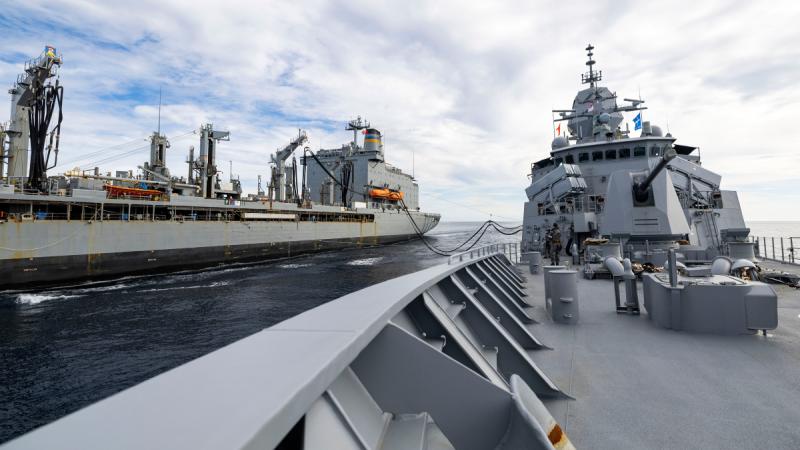17 September 2021
Navy – and the Australian Defence Force – is about to undergo a major shift in military technology, in which it will enter a new era of sub-surface capabilities.
Prime Minister Scott Morrison has announced that Australia will acquire a fleet of at least eight nuclear-powered submarines, supported under an enhanced trilateral security partnership with the United Kingdom and the United States - AUKUS.
“AUKUS will build on the deep history of cooperation between our nations,” Mr Morrison said.
“It will be part of a greater positive engagement by like-minded partners in the region to contribute to stability, and to avoid the rise of any hegemonic power that could compromise regional stability and resilience.
“Through AUKUS, our three nations will promote deeper information and technology sharing, fostering deeper integration of security and defence-related science, technology, industrial bases and supply chains.”
Australia’s acquisition of a fleet of nuclear-powered submarines is the first major initiative under this partnership.
As our Defence leaders have previously said, the Indo-Pacific - Australia’s region - is now the epicentre of strategic competition.
Australia is entering a new era, which requires more advanced capabilities that will allow us to protect the nation and its interests, and that of our regional partners.
Nuclear-powered submarines also have the capacity to carry more advanced, and a greater number of weapons.
However, Australia does not and will not seek nuclear weapons.
Australia’s acquisition of nuclear-powered submarines will mean the government will no longer proceed with the Attack-class Submarine Program.
Mr Morrison also announced that South Australia would remain the home of full-cycle dockings for the Collins-class submarines.
Chief of Navy Vice Admiral Mike Noonan said the announcement was the single most consequential decision made in relation to the navy in his lifetime.
He acknowledged the hard work of those who have contributed to the Attack-class program to date, and said affected personnel could be assured they would still have an important role to play in future capabilities.
“Now, you might ask ‘what does this mean for me?’ ” Vice Admiral Noonan said in a video address to Navy. Watch it here:
www.youtube.com/watch?app=desktop&v=1WYuGu5QNDA&feature=youtu.be
“We still have a significant job to do in delivering our Naval Shipbuilding Enterprise and we must use this momentum to propel us into this exciting new phase.
“The officers and sailors who will make up the very fabric of our nuclear-powered submarine fleet, those who will dedicate their careers to protecting our nation and its interests, and that of our regional friends, are yet to enlist.
“The success of our future sailors, our children, nieces and nephews, depends on how we embrace change today, and set them up to succeed in the future.”
Vice Admiral Noonan said he remained extremely proud of the Navy workforce.
“As you continue to perform your duties, I would encourage you to treat this change in direction of our future submarine program as you would any other mission,” he said.
Through AUKUS, Australia, the UK and US will embark on an 18-month period of consultation to determine the optimal pathway to a nuclear-powered submarine fleet for Australia.
It will intensively examine the full suite of requirements that underpin nuclear stewardship, with a specific focus on safety, design, construction, operation, maintenance, disposal, regulation, training, environmental protection, installations and infrastructure, basing, workforce, and force structure.
The Nuclear-Powered Submarine Task Force, led by Vice Admiral Jonathan Mead, will lead this work in the department.
Submariner Commander Lindsay Gordon said submarines were an important defence capability and nuclear propulsion would enhance this effect.
“With their stealth, range, endurance and powerful weapons, submarines are designed to operate and strike without warning,” Commander Gordon said.
“They are highly versatile and can strike a range of targets, collect intelligence, conduct mine warfare and support special operations.
“Nuclear-powered submarines have superior characteristics of stealth, speed, manoeuvrability, survivability, and almost limitless endurance, when compared to conventional submarines. They can deploy unmanned underwater vehicles and carry more advanced and a greater number of weapons.
“These abilities allow nuclear-powered submarines to operate in contested areas with a lower risk of detection and deter actions against Australia’s interests.”
To read more about the announcement, visit //www1.defence.gov.au/about/taskforces/nuclear-powered-submarine-task-force


